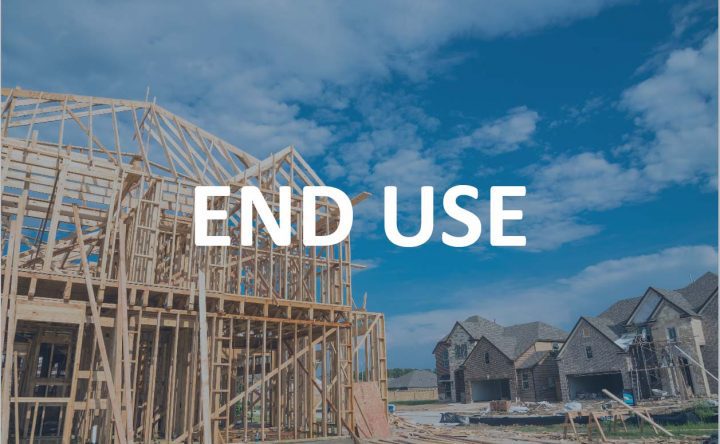Freddie Mac has released its Primary Mortgage Market Survey (PMMS) for the week ending June 16, 2022. The PMMS reports that the 30-year fixed-rate mortgage averaged 5.78% with an average 0.9 point, up from last week when it averaged 5.23%. This is the largest one week increase since 1987.
News in end use
Weekly Jobless Claims Inch Lower in the Week Ending June 11, 2022
The U.S. Department of Labor is reporting that an additional 229,000 Americans (seasonally adjusted) made their initial filing for unemployment benefits during the week ending on Saturday, June 11, 2022. This is a decline of 3,000 from the previous week’s revised level. The 4-week moving average was 218,500.
Canadian Housing Starts Trend Lower in May 2022
According to the Canada Mortgage and Housing Corporation, the trend in housing starts in May were at 254,727 units, down from April’s reported 257,833 units. The trend measure is a six-month average of the monthly seasonally adjusted annual rates (SAAR) of housing starts.
Mortgage Applications Jump 6.6% in the Week Ending June 10, 2022
According to data from the Mortgage Bankers Association’s Weekly Mortgage Application Survey, for the week ending June 10, 2022, the Market Composite Index (a measure of mortgage loan application volume) increased 6.6% on a seasonally adjusted basis from one week earlier. On an unadjusted basis, the Index increased 17.0%.
Builder Confidence Slips for Sixth Consecutive Month in June 2022
The National Association of Home Builders/Wells Fargo Housing Market Index (HMI) reported on Wednesday that builder sentiment in the market for newly built single-family homes fell 2 points lower in June to a reading of 67. This is the sixth consecutive month that builder sentiment has declined, and it is at its lowest level since June 2020.
Mortgage Delinquency Rates Declined Further in March 2022
According to CoreLogic’s latest loan performance report, which was released on Tuesday, approximately 2.7% of all mortgages in the U.S. were delinquent in March—a new historic low for the report. Year-over-year, it is a decline of -2.2% from the 4.9% posted in March of 2021. All 50 states posted annual declines.
Producer Price Index for Final Demand Edges 0.8% Higher in May 2022—Up 10.8% Year-Over-Year
The Bureau of Labor Statistics reported today that the Producer Price Index for final demand, seasonally adjusted, increased 0.8% in May. This rise followed advances of 0.4% in April, 1.6% in March, 1.1% in February, and 1.2% in January. On an unadjusted basis, final demand prices moved up 10.8% for the 12 months ending in May.
Realtor.com Updates its 2022 Home Buying Forecast
Realtor.com has updated its 2022 home buying forecast to better account for rising inflation and mortgage rates. The update predicts that home inventory will grow double-digits above 2021, which in turn will offer buyers a better-than-expected chance of finding a home. The forecast anticipates a summer break from the intense pace of home sales.
The NFIB’s Small Business Optimism Index Sets New Record Low in May 2022
The National Federation of Independent Business reported today their NFIB Small Business Optimism Index (SBOI) for May. According to the report, the May SBOI fell below the 48-year average reading of 98 for the fifth consecutive month to a reading in May of 93.1. That is -0.1 points below the April reading and a new record low for the index.
Canadian Investment in Building Construction Up 2.7% in April 2022
Statistics Canada reported today that investment in building construction rose by 2.7% to $20.9 billion (CAD) in April. Increases were reported in both residential, up 3.2%, and non-residential, up 1.4%. On a constant dollar basis (2012=100), investment in build construction grew 3.5% to $13.0 billion.



